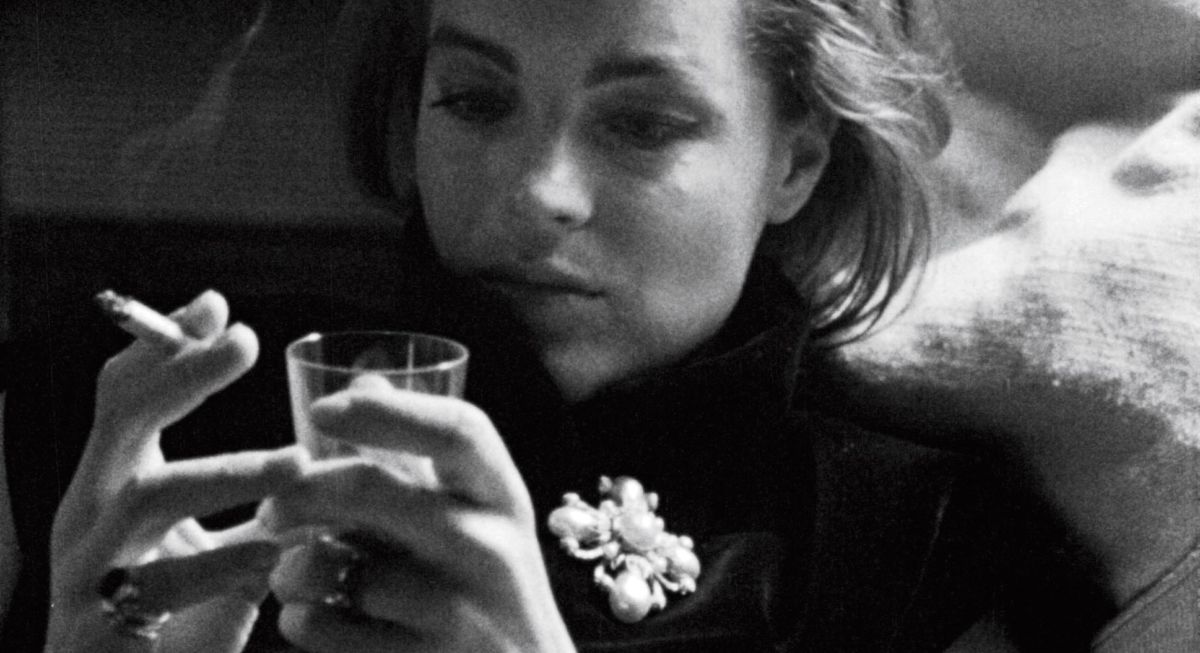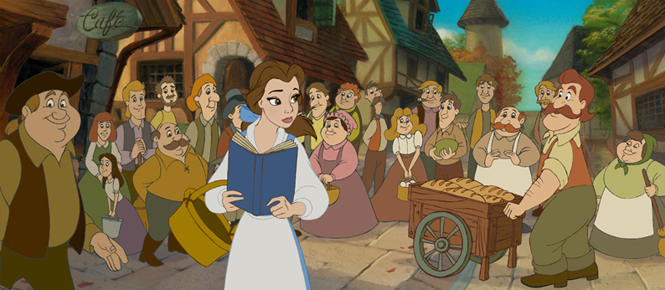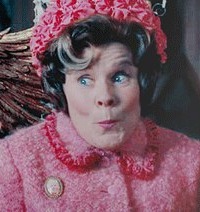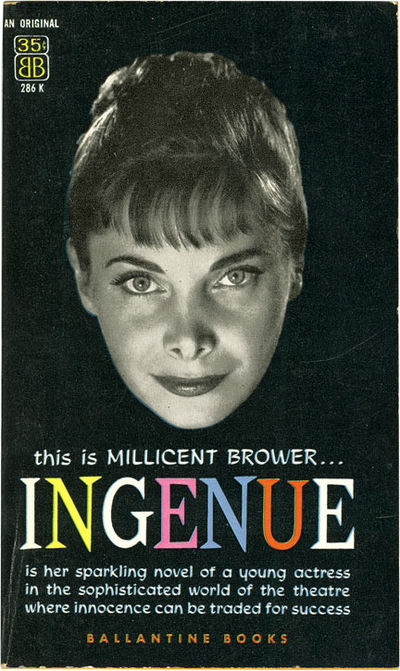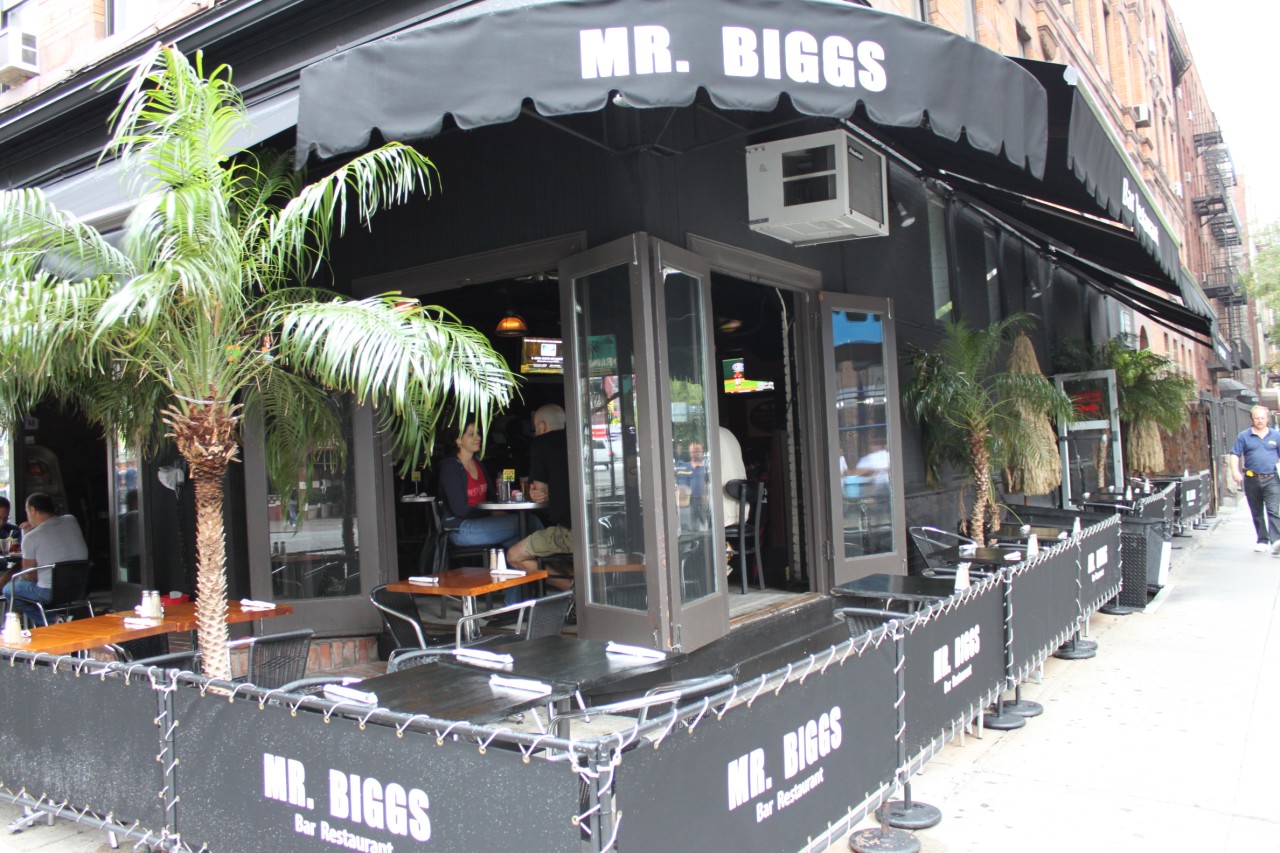When I lived in Hell’s Kitchen I would occasionally visit a dive bar called Tobacco Road, located across from the Port Authority bus station, where the bartenders wore bras and the patrons were unshaven and grumpy.
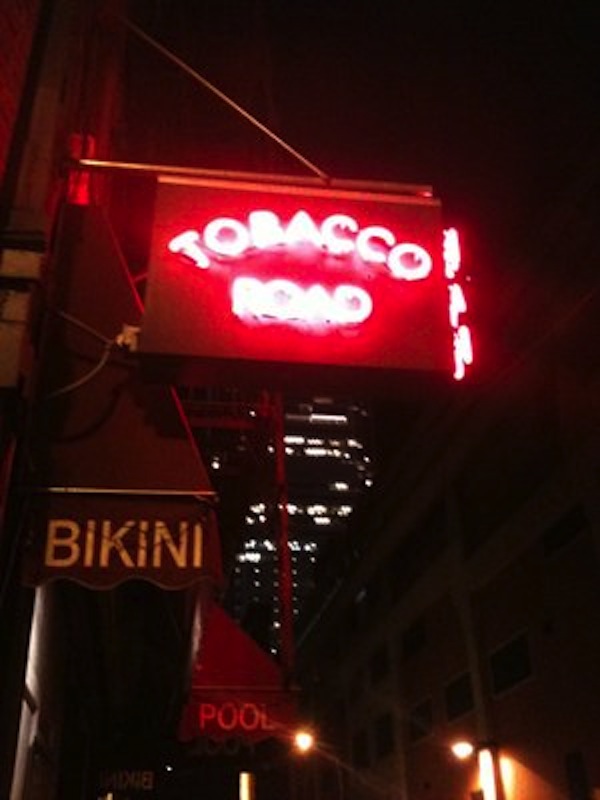
One night I was drinking Guinness and reading Chekhov short stories when a bartender struck up a conversation. She was named Alexa, had gratuitous make-up, platinum blond hair, and lingering ghosts behind her eyes. She noticed my book and told me she was taking acting classes. They were currently performing Chekhov’s play, “The Seagull.” What a coincidence! Did I know it? Yes, I’ve read it twice…now tell me more about your acting dreams. A couple of beers later she gave me her number. We went on a couple of promising dates (bustling coffee shop, leisurely lunch, evening stroll, etc.) We got along well…one night after a dinner date we kissed passionately outside of her apartment. When I stepped back I noticed tears in her eyes.
“We can’t do this anymore,” she said. “Why not?” I replied.
“I’m…I’m engaged.”
“Then we can’t do this anymore. I had a lot of fun, though.”
“I really like you. I didn’t mean to lead you on. It’s just…my fiancé, we’ve been close friends for years, he’s…he’s such a nice guy, he pays my rent, and…I don’t know. I’m so stupid. I’m so sorry.”
“It’s alright. You know I’m a waiter and a writer. I won’t be able to pay your rent for at least ten years.” She did one of those choking laughs. We hugged each other for a minute and parted ways. A week later she came to the restaurant where I worked, Hallo Berlin, for the first time with her fiancé.

Hallo Alexa. Hallo fiancé. His name was Bill and he was a portly investment banker with thinning hair and a friendly handshake. Alexa talked rapidly, laughed frequently, and told Bill I was a regular at her bar. I’ve never been a regular at Tobacco Road. Bill left a big tip, they walked out holding hands, and I never saw Alexa again. What a funny girl. This actually has nothing to do with the following story, I just had to get that off my chest.
When I lived in Hell’s Kitchen I would occasionally visit a small park on 43rd street between 9th and 10th ave and read next to my bulldog: Hank.
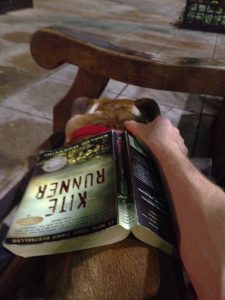
The benches were uncomfortable and it was often cold, but I frequently felt stir crazy in my apartment. Furthermore, Hank liked to be out and about after a stressful day of waiting at home while I was enthusiastically pushing wiener schnitzel. To stay warm and relieve my lower back, I’d often walk around the park with a book in front of my face. I was like Belle from Beauty and the Beast.
Youth is fleeting, and I can already feel my 20s slipping through my greedy, twitching fingers, but those nights in the park were some of the best nights of my early 20s. I’ll savor them for the rest of my life. I traveled the world inside my head, became close friends with dead people, and felt waves of sadness, love, frenzy, and joy. In addition, the pieces of my first novel were finally coming together, and it felt glorious to be an aspiring, hopeful artist creating a masterpiece that would someday be rejected by almost every literary agent and publisher in the country.
On many of those nights, there was also an old woman who would sit in the park. All she did was stare at a building across the street. She was quite large and looked like an elderly version of Professor Umbridge from Harry Potter.
For a couple of weeks I would acknowledge her with a head nod when I left the park, but that was it.
One night, though, she came over to where I was sitting.
“I see you here all the time. You read a lot, don’t you?” I looked up. She had bleary, blue eyes, a pallid face, wispy gray hair, thin lips, and a wide smile.
“Yes. I do.”
“My name is Millie. Mind if I sit down?”
“Not at all.” I moved over and she slowly lowered her bulky body and twenty five scarfs to the bench.
“And who are you?”
“Jack.”
“What are you reading?” Her voice was loud, abrasive, and I could already tell that her personality was forward and brash.”
“The Kolyma Tales. By Varlam Shalamov.”
“Ah, the Russians, I like the Russians. Chekov is my favorite writer. Do you know Chekov? What are the Kolyma Tales about?”
“Fragmented stories about the Gulag Labour camps. Very bleak. Very dark. I like Chekhov too. Shalamov’s work is actually described as a more brutal, violent Chekhov.”
“Ahh. Never heard of him. Why do you read so much? Shouldn’t you be on your cell phone? Watching TV? On a computer?”
“I-”
“You must be a writer.”
“Yes.”
“You know, I wrote a book.”
“Really?”
“Yes, back in the late fifties. When I was an actress. It was published by a major publishing house: Ballantine Books. Which is part of Random House now. It’s called Ingenue. That means young actress in French, but also means innocent and ingenuous. You can buy it on Amazon. My full name is Millicent Brower. Spelled M-I-L-L-I.”
“Hold on. Let me put it in my phone.”
“You won’t actually buy it,” she laughed. “I don’t know what I’m saying.”
“No. I will. And I’ll read it.” We sat there in silence for a minute. The night wind passed softly through the surrounding trees and Hank woofed at a passing poodle.
“How long did you act for?” I asked.
“Ten years. It was hard. Very hard. I was in Studio One in Hollywood, but I never made it. It’s tough being an actor. Real tough. People don’t understand.”
“No, they don’t.”
“I stopped acting in my 30s. Not long after I published the book.”
“Why?” She laughed again.
“You know, it’s hard to say. I guess I stopped when I married my husband.”
“Did he tell you to quit?”
“No. He didn’t. George encouraged and supported me.” She had a distant look in her eyes and I could tell she was delving deep into memory. “But life moves fast. Very fast. You wouldn’t believe it. One day you say I’m not gonna go to this or that audition, then your beauty’s gone, and if you don’t have a reputation, nobody cares. Nobody will give you a chance. How old are you?”
“Guess.”
“33.”
“23.” She laughed once more.
“Oh, you wait Jack, you’re young. Time will keep moving faster and faster. I’m 83 now. I remember being 23 yesterday.”
“Hmm. Was it difficult publishing a book? Did you have to send it out to a lot of agents and editors?”
“No, not at all. It was easy. My book was accepted by the second publisher I sent it to.”
“Hmm. Well, I’ll make sure to read it.”
“Please do. You live around here?”
“Nearby. On-”
“I used to live across the street, in that building, right there, with my husband. He died 10 years ago. George was his name.”
“Ah.” She slowly stood up.
“Well, I’m getting cold. It’s freezing out here. Aren’t you cold? I better get going. My back has been killing me. It was nice meeting you, Jack.”
“Yes, it was nice meeting you too, Millie. See you later.” She shuffled away.
Later that night I ordered Millie’s book and read it within the week. Here it is…it’s been out of print for a couple of decades:
Holy shit! I remember thinking. This old woman used to be beautiful! For some reason, it made me feel sad. At the time, I remember reading an article about what it’s like being an aging, beautiful woman. The author described the difficult, confusing, and painful transition. For years, a beautiful woman receives incessant attention from men, and in some spheres gets whatever she wants, then it all gradually fades away. It’s not easy adapting to the new lifestyle of being comparatively ignored and neglected.
When I finished reading Ingenue I remember thinking it was one of the worst books I had ever read. Art is subjective, of course, but I personally didn’t like the protagonist and how she looked at the world. She was annoying, demanding, and always complaining. “I’m late for this. Person A won’t give me that. Person B is mean. So many chores. My socks are dirty. Etc.”
But despite my severe criticism of the book as a whole, there was one passage which moved me deeply. I had a feeling she had written the entire book with this single passage in mind. The novel should have been a short story. Two-thirds of the way through, there was an explicit rape scene. It was brutal and wretched. It felt real and I’m convinced it actually happened to Millie. The protagonist was raped by her acting manager. She didn’t know how to deal with it or resist him. She was an aspiring actress and this was the only way she thought she could get ahead.
For weeks I waited to see Millie in order to talk with her about the book. But she was never in the park after that initial encounter. Not long after, I moved to Brooklyn. Since she was 83, I assumed she had died.
When I moved to Brooklyn I threw away her book and mostly forgot about Millie Brower. In fact, when I started writing this post, I couldn’t even remember her name. For hours I wracked my memory and typed random “old woman names” into google: Phyllis Ingenue? Agnes Ingenue? Finally, I got it. Millicent Brower. She actually has an IMB profile and a Facebook too. Her Facebook occupation reads:
“Writter at Sel Employed”
One afternoon I left Brooklyn and traveled to Hell’s Kitchen for an errand I can’t remember. I was clean shaven, cheerful, and wearing a tie. It was a hot day and I walked through that park where I used to read next to Hank. I was flooded with memories. Was that Ingenue writer woman still alive?
As I turned the corner of 43rd and 10th ave, I saw Mr. Biggs Bar:
And as I passed by, I stopped in surprise. There was the Ingenue old woman whose name I couldn’t remember! Sitting by herself outside! What a coincidence! My friends and family know I have an uncanny talent for never forgetting a face. I frequently spot people from my distant past in public. It’s either borderline savant or insanity. So when I saw this old woman, a part of me wasn’t actually that surprised.
I walked over to the table.
“Hey Ingenue.” She looked up quickly in shock. “Mind if I sit down?”
“Ahh. Not at all.”
“Remember me?”
“Are you…the…the writer…with the bulldog?”
“Yes. Good memory.” The people around us stared in disbelief. What was this young man wearing a tie doing sitting down with this wizened, old woman?
“I read your book.”
“Really?” She smiled and her wasted, pallid face blushed pink.
“Yes.”
“How’d you like it?”
“It was…pretty good.” I ordered a Guinness and drank it fast. It was a strange conversation with many pauses and I hardly remember what we talked about. We oddly never asked each other’s names. I think we both thought we were supposed to know. She still lived nearby. Where am I living now? Brooklyn. Am I still writing? Yes. Am I published yet? No, not yet. Isn’t it a nice and sunny outside? After I finished the beer I paid, then stood up.
“Well, it was nice seeing you,” I said.
“Yes, it was nice seeing you too.”
“Have a good afternoon.”
“You…you too. And thank you, thank you so much for…for sitting down with me. This has made my day, my week.”
“No big deal. Goodbye.”
“Goodbye.”
I walked to the corner and waited a minute. Cars passed by. And before I walked across the street, I looked back at Millicent Brower one more time. She was looking down at the table. I could hardly see her face. And to this day, I don’t know if my imagination was playing some cruel trick, but I think I saw her shoulders shaking. It looked like she was crying or about to cry. When the crosswalk changed I turned away and walked toward wherever I was about to go.
Subscribe here:

